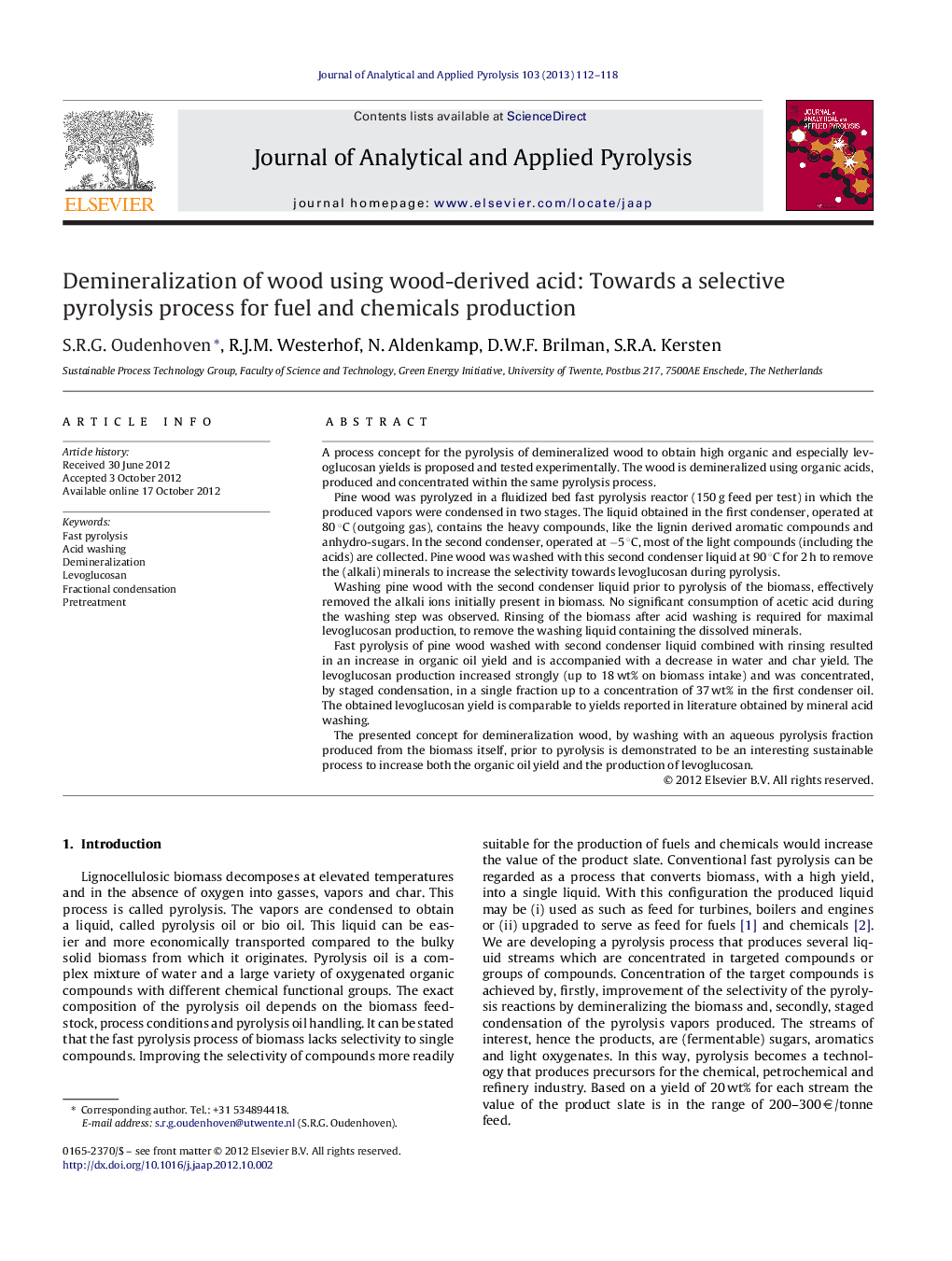| Article ID | Journal | Published Year | Pages | File Type |
|---|---|---|---|---|
| 1197177 | Journal of Analytical and Applied Pyrolysis | 2013 | 7 Pages |
A process concept for the pyrolysis of demineralized wood to obtain high organic and especially levoglucosan yields is proposed and tested experimentally. The wood is demineralized using organic acids, produced and concentrated within the same pyrolysis process.Pine wood was pyrolyzed in a fluidized bed fast pyrolysis reactor (150 g feed per test) in which the produced vapors were condensed in two stages. The liquid obtained in the first condenser, operated at 80 °C (outgoing gas), contains the heavy compounds, like the lignin derived aromatic compounds and anhydro-sugars. In the second condenser, operated at −5 °C, most of the light compounds (including the acids) are collected. Pine wood was washed with this second condenser liquid at 90 °C for 2 h to remove the (alkali) minerals to increase the selectivity towards levoglucosan during pyrolysis.Washing pine wood with the second condenser liquid prior to pyrolysis of the biomass, effectively removed the alkali ions initially present in biomass. No significant consumption of acetic acid during the washing step was observed. Rinsing of the biomass after acid washing is required for maximal levoglucosan production, to remove the washing liquid containing the dissolved minerals.Fast pyrolysis of pine wood washed with second condenser liquid combined with rinsing resulted in an increase in organic oil yield and is accompanied with a decrease in water and char yield. The levoglucosan production increased strongly (up to 18 wt% on biomass intake) and was concentrated, by staged condensation, in a single fraction up to a concentration of 37 wt% in the first condenser oil. The obtained levoglucosan yield is comparable to yields reported in literature obtained by mineral acid washing.The presented concept for demineralization wood, by washing with an aqueous pyrolysis fraction produced from the biomass itself, prior to pyrolysis is demonstrated to be an interesting sustainable process to increase both the organic oil yield and the production of levoglucosan.
